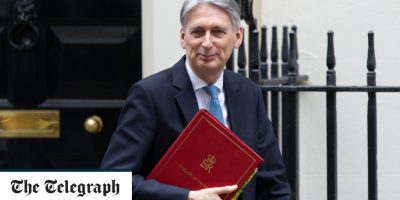Britain is fast becoming a nation of savers as coronavirus sparks levels of financial anxiety not seen since the financial crisis.
We pulled £10bn out of the crashing stock market in March, according to figures from the trade body the Investment Association, as the economic impact of the virus became clearer. Much of this was stashed away into secure savings accounts, despite historically low interest rates. Household cash deposits increased by more than £13bn, separate data from the Bank of England showed.
More than six million people are on furlough, earning 80pc of their normal salary under the Government’s Coronavirus Job Retention Scheme. A £2,500 monthly cap means higher earners are earning an even smaller percentage of their usual incomes, while millions more do not qualify for the support at all.
Claims for benefits like Universal Credit, which pays up to £94.25 a week, have soared. A quarter of the population is already feeling the income squeeze, according to the Office for National Statistics, with more than two thirds fearing further falls.
After record levels of employment and a decade of rising wages, the prospect of recession has caused people to reign in their spending. Two thirds of us are spending less than we normally would, researchers at Ipsos Mori found, with almost one third saving more.
The unique circumstances of lockdown and many people self-isolating or working from home has also boosted savings. Removing the cost of commuting, eating out and leisure from normal spending means households are saving £162 a week on average, according to estimates from insurers Aviva.
It found those aged between 50 and 64, an age group which tends to spend more on leisure and transport, could be saving almost £200 a week.
Those aged over 75 were likely to save the least, as their expenditure was already low. Under-30s were the second lowest savers, still having to pay hefty fixed costs such as rent, but still managing to put away more than £130 more than normal each week.
The number of people making pension contributions fell in March and April this year compared with 2019, according to pension provider PensionBee, but those who could saved more. The average amount squirrelled away increased from £1,225 to £1,752.
Gemma Birbeck, 32, from West Yorkshire and her partner have already saved up around £2,000 since the lockdown began, despite her partner being furloughed.
A self-employed PR, Ms Birbeck said they would normally spend around £10 on coffee a day, £20 on public transport, £10 on food and up to £100 in some cases when entertaining clients. This, along with regular nights out with friends, which can cost as much as £200 at a time, had now ceased.
“The business was turning over around £5,000, but now just £3,000,” she said. “After investing and starting up my own business, I have become a lot more cautious and am thinking about the value of money and saving it more.”
She is working from home and took around £700 from her savings to landscape her garden, she added.
Jamie Flook, of advisers Citimark Partnership, said we are living through a unique opportunity to save and build a cash cushion. He urged people to continue saving and avoid spending too much once the lockdown ends.
“The current economic situation is putting huge stress on households across the country but for some, these lockdown savings offer a silver lining,” he said.
“Although it might be tempting, individuals and families should be wary of spending these savings as soon as lockdown ends. There might not be another situation where people are forced to save chunks of cash so careful considerations should be made.”

























Comments